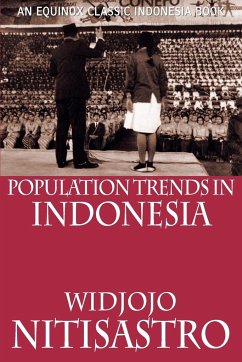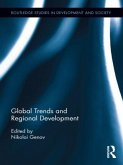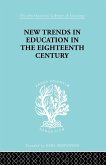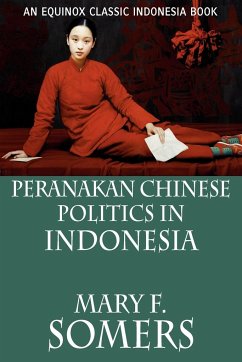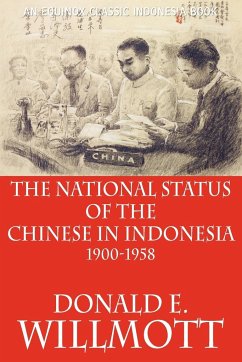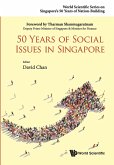The first comprehensive demographic study of Indonesia, this book makes an important contribution to the understanding of the political and economic problems - both past and present - of the world's fourth most populous country. It demonstrates that the period 1970 to 1980 will be particularly crucial for Indonesia and will require careful social and economic planning. The author, who is acknowledged to be Indonesia's foremost economist demographer,amasses and corrects population estimates made during the era of Dutch rule, including material from as early as 1775. He discusses the census of 1930 and the impact of events of the 1940's - World War II, the Japanese occupation, and the Indonesian revolution - on population trends. He points out, for example, that low birth and high mortality rates during the subsequent period, suggest that the mean age of Indonesia's working age population is undergoing a radical rejuvenation. Using the census of 1961 as a base, Mr. Widjojo projects Indonesia's population to 1991, forecasting the probable growth rates of the total population and of its various components. He shows how the population breaks down into extremely uneven age groups and suggests the serious consequences of this situation. He emphasizes that the dramatic increases in the number of 15-to-24-year-olds that occurred in the population during the second half of the 1960's and that are projected for the 1970's make careful preparation for the future imperative if crises in the labor market and in the field of education are to be dealt with successfully. Population Trends in Indonesia, now brought back to life as a member of Equinox Publishing's Classic Indonesia series, serves as a model for future research and proves invaluable to economic and social planners working throughout the developing world. Widjojo Nitisastro, former Dean of the Faculty of Economics at the University of Indonesia, was Chairman of President Suharto's Economic Team and of the National Development Planning Agency. A graduate of the University of Indonesia, Professor Widjojo received a Ph.D. degree in Economics from the University of California at Berkeley.
Hinweis: Dieser Artikel kann nur an eine deutsche Lieferadresse ausgeliefert werden.
Hinweis: Dieser Artikel kann nur an eine deutsche Lieferadresse ausgeliefert werden.

